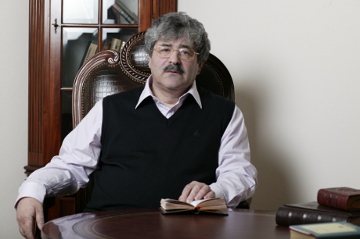
Part One
Among the other freedoms, the spirit of our age has been and remains largely defined by freedom of enterprise. Of course, it was not always so. Why an era makes a preferred choice in favor of one freedom or another, fighting for it, suffering for it and shedding blood for it, is a special question. Let us remember for how many centuries the struggle for religious freedom served as a dramatic and sometimes tragic leitmotif in European history.
The "Christocentric" consciousness of the Middle Ages gave way to the era of humanism, when the person became the center of everything, and civilization became "human centric" or, as scientists would say, "anthropocentric". Each of these eras was marked not just by a set of values, but also the intense struggle for "freedoms", which provided a living space for these values, and the ability to survive and develop. In the twentieth century, in the era of technological revolution, the French environmentalist Jean Dorst writes: "We live in an age of technology, when the humanities have been superseded by the technocracy, when human civilization is gradually being replaced by a civilization of machines and robots ..."
However, neither "robot centrism", nor "machine centrism" became the paradigm of modern civilization; they only identified a general shift in consciousness from the "human centric" model to the "consumer goods centric model." All this engineered enthusiasm, this space odyssey, "Solaris" and all the romantic science fiction idylls that flared were quickly extinguished, like a meteor, and proved alas, to be only a camouflage, a disguise for the idyllic minded. All the ideals of the so-called technological revolution were put into service, leaving no residue behind, absorbed by a powerful all-consuming Gulf Stream of civilization called "industrialism." It was this that put at the forefront of public consciousness, as a principle and as an ideal, the slogan "freedom of enterprise."
"In the beginning was the deed," so came out of the mouth of Goethe's Faust and in this logo and symbol he offered humanity a path strewn with thorns, because it was on this path that humanity came to a great crossroads that demanded an answer to the question: "What was the reason for the deed?" If "in the beginning it was the deed," that the deed was valuable in itself, then it does not need excuses, as it is outside of the categories of good and evil. Moreover, it flies in the face of what else the respectable burgher believed, after a hard day’s work reading surrounded by his family that "Faith without deeds is death." In fact the burgher may not have completely severed all relations with Christ, because he understood the deeds were not an end but a virtue, a subordinate faith. He was clearly aware in his mind, that freedom of enterprise is not contrary to the Christian world, and boldly stepping on to the stages of the Industrial Revolution, he carried the creed with amazing consistency so close to our hearts in the decades of the late twentieth century.
However, even Mephistopheles all the while, as usual, was not dozing. And being, in the words of Florensky, a "monkey of God" immediately found the flaw in the Faustian "philosophy of deeds." He understood that deeds are not just work, sweat, and tears, not only the opportunity to help your neighbor, to build a culture, to create and perform. Deeds are also about wealth and property, and what is especially valuable for them, is the attachment of them to the human heart. A Russian exile, who observed European life the mid-twentieth century, wrote soulfully: "The person who craves everything silver, and even weighs purely spiritual values in gold, has no other way of thinking. If" property, in the words of Pope Leo XIII in his famous bull Rerum novarum, is an extension of personality ", then such a person is an extension of the personality of his property, which imposes a deeply materialistic imprint on his soul." The personality as a derivative continuation of property, is dependent and servile - a vicious circle.
We have come to the point; one can say a turning point, in the time of the development of modern civilization, from humanistic "human centrism" to "consumer goods centrism", which was designated by the transition from the concept of "freedom of enterprise" to the notion of "freedom of the market." Of course, you catch the difference ... The first is an obvious link between mankind with his world of personal freedoms and his individual creativity. The second brings something to the fore that has no direct relation to him, a kind of self-sufficient entity called "the market", with its "mechanisms", elements and technologies that the individual and his freedoms must certainly comply with.
(To be continued)<!--EndFragment-->
read more in our Telegram-channel https://t.me/The_International_Affairs

 16:08 25.02.2010 •
16:08 25.02.2010 •






















